Latest updates
Call for the Return of Electoral Gender Parity
1st February 2023
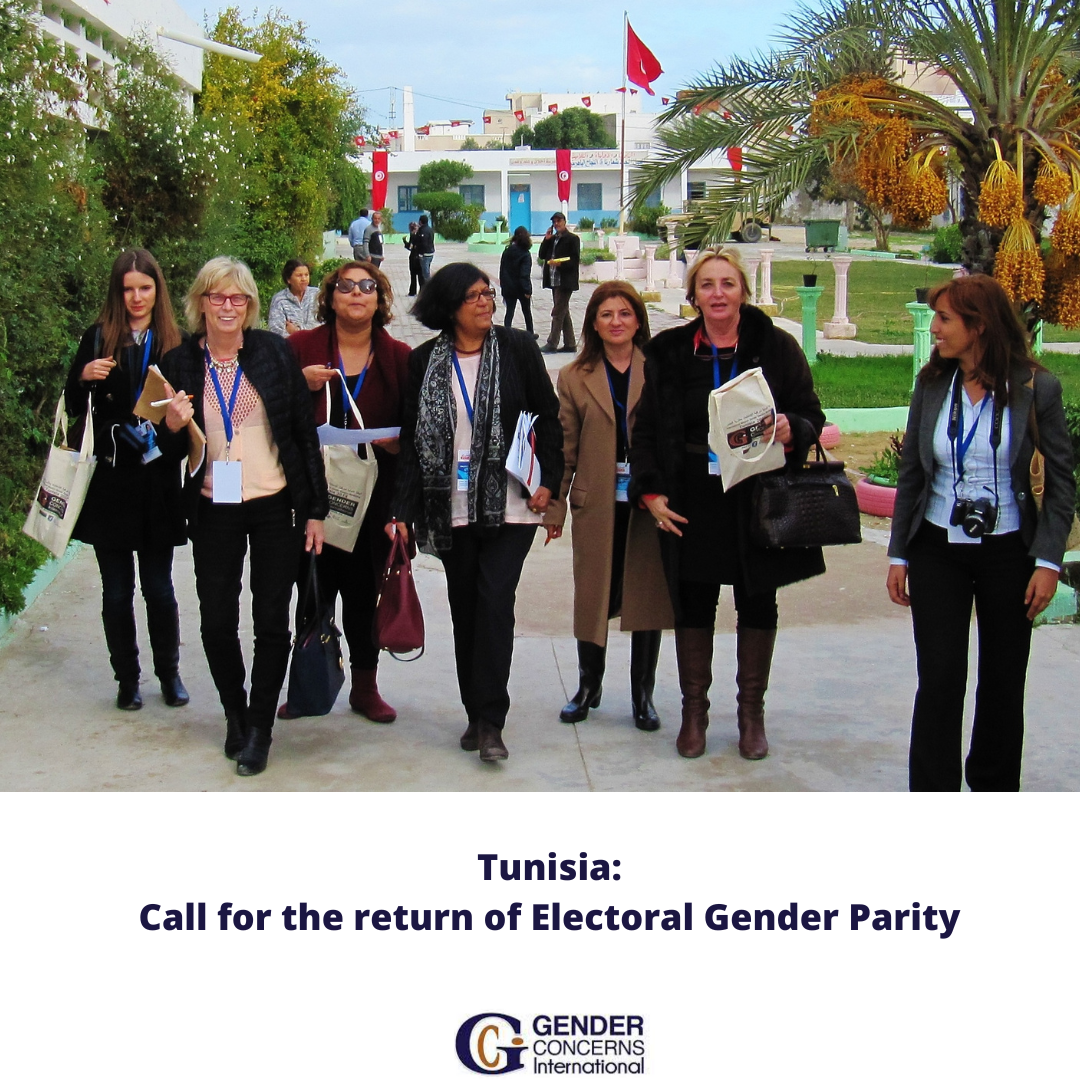
According to preliminary results the second round of Tunisian parliamentary elections has delivered a very low number of 25 women parliamentarians for the First Chamber reflecting poor rate of women’s electoral participation.
This concerning decline in women’s electoral representation as stated, is due to the persisting gaps and loopholes in the new electoral law, by women and human rights organisations in Tunisia.
As an organisation that since 2011 is supporting gender and democracy in Tunisia and in the wider MENA region, also by observing many elections with local women and human rights organisations, Gender Concerns International considers this disengagement of citizen in recent elections as a protest against the attempts of derailing democracy in Tunisia.
We support the demand for the return of full democracy and the Electoral Gender Parity in Tunisia in order to bring peace, stability and prosperity in the country and the region
Strict Scrutiny of Election Management Bodies in Tunisia:
Women learning from their past election observation
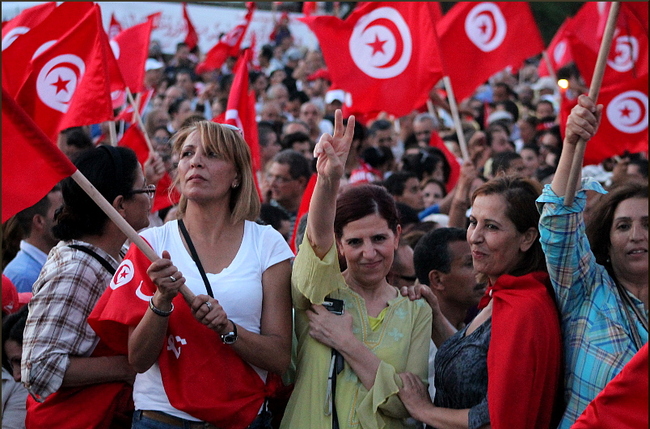
As the next month’s elections are approaching in Tunisia, women rights activists are vigilant and stand firm in continuing their protest against the deteriorating human rights situation. They have launched petitions and taken to the street calling for local and international organisations to support their fight against ongoing violation of women`s human rights in Tunisia. Women demand justice for the victims of police brutalities urging the government to stop violence, torture, and the corruption, and by challenging the new laws being adopted around electoral process. They warn about the adverse impact of such decisions on the overall political participation of women and consider this a conscious attempt to derail the progress process of gender equality. Protesters demand removal of the appointment of the Judge at the High Independence Authority for Elections calling as he has exceeded the legal term to be a Judge at the Commission. For upcoming elections, the Election Management Bodies and Election Administration remain under the strict scrutiny of human rights and women’s rights organizations that they have also learned through their past election observation experience.
Women’s March taking place in Tunisia
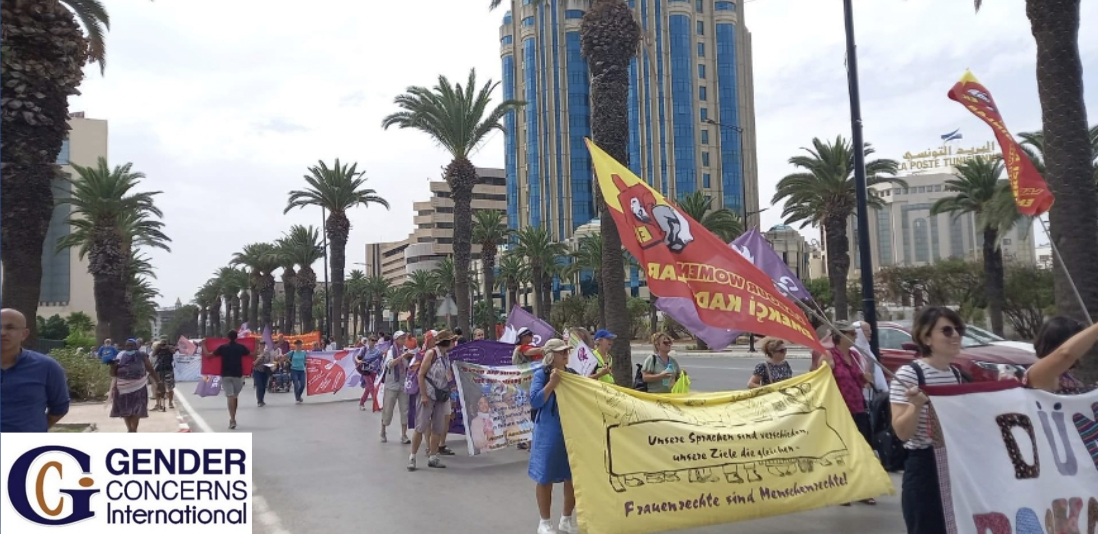
On September 4th, 2022, women from different continents took part in the Women’s March at the opening of the 3rd World Women’s Conference of Grassroots in Tunisia organized by the Tunisian Democratic Women Association (ATFD) from September 3rd to September 9th, 2022. Their aim is to strengthen global female solidarity, exchange experiences, and open to new forms of female solidarity struggle.
Local women organizations, like the ATFD, remain resilient in the ongoing protests preceding and following the referendum of July 25th, 2022. In that referendum around 30.5% of the eligible voters took part and it was announced that 94.6% of them voted in favour of the new constitution drafted by President Kais Saied. The situation in Tunisia is ambivalent as on the one hand progression can be observed, but on the other hand, the fear exists that the president is using the current crisis in Tunisia for his own causes.
The ATFD also called for peaceful protests before the referendum where participants were assaulted and sprayed with tear gas by the police and various security groups, who also arrested multiple protestors. They, together with other Women Organizations call for human rights, the right to protest safely, and the adherence to conventions on human rights as well as the withdrawal of the national state of exception, a return to the democratic path, and a participatory national dialogue. They declare the draft of the new constitution to be a threat to the achievement of Tunisian women.
In reaction to the referendum, the Tunisian NGO Mourakiboun, which observes elections, demanded the publication of the results of all polling stations, photos of the sorting logs, and the results counting, as well as the general adoption of transparency and availability of information. Following the referendum on 25th July, the Administrative Court issued two appeals against the results. The appeals were submitted by the I Watch organization and the Echaâb Yourid party. The first appeal was rejected in form and the second appeal in merit.
The closing resolution urges women all around the world to raise awareness daily and organize work for the broadest women’s mass movement from religion to revolution.
Democracy in Tunisia: the emergency situation and upcoming elections
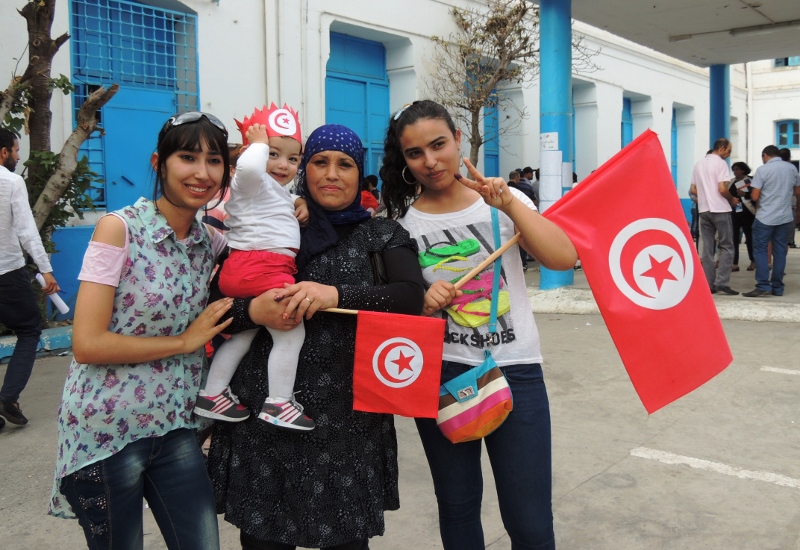
The national consultation that concluded on the 20th of March 2022, celebrating the day of Independence in Tunisia, has been applauded worldwide for its participatory approach. The consultation has been considered as the first step in the President’s attempt for constitutional reforms. The Tunisians voiced their opinion on the future of their country, concerning economics, politics and social problems.
Out of the 12 million electorates, only 500.000 ( less than 6% ) participated in the consultation, where stark gender imbalance was reflected, by less than 30% of women respondents.
The consultation serves as the basis for constitutional amendments that will be voted on during a referendum scheduled for next July. The new legislative elections are announced to be held in December 2022. Officially ending the state of emergency.
The President had declared a state of emergency in Tunisia following mass demonstration during which the population denounced the worsening economic and sanitary crisis. Since it’s start, several civil society organizations have shared their concerns and argued that the emergency situation cannot undermine democracy and civil rights, and freedom of expression in Tunisia. However activists also take this as an opportunity that will help to consolidate democracy and promote women’s rights and equality moving forward in Tunisia.
Tunisia: New Website on Gender Equality aims to raise awareness and support stakeholders to prevent violence against women and children
September 28, 2021
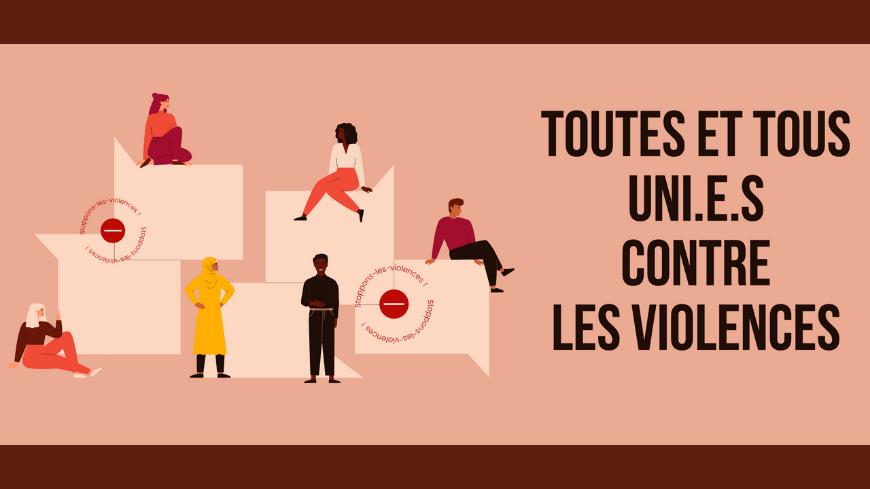
This summer the website ‘’All United Against Violence’’, developed by the Tunisian Ministry of Women, Family and Seniors with the support of the Council of Europe, was launched. The platform includes focal concepts on gender based violence and discrimination. It gathers applications, portals and supports available at the national level on key topics, such as gender equality and violence against women and children.
This year marked the 10 year anniversary of the Council of Europe’s Istanbul Convention on Preventing and Combating Violence against Women and Domestic Violence. Tunisia was, together with Kazakhstan, the first non-member state to express interest to accede to the Convention and was invited by the Committee of Ministers of the Council of Europe to do so on 22 April 2020.
Gender Concerns International welcomes the Tunisian initiative after the COVID-19 pandemic has exacerbated gender-based violence everywhere, especially in the domestic sphere.
Tunisia Urges Once Again for Democracy, Peace and Development
July 26, 2021
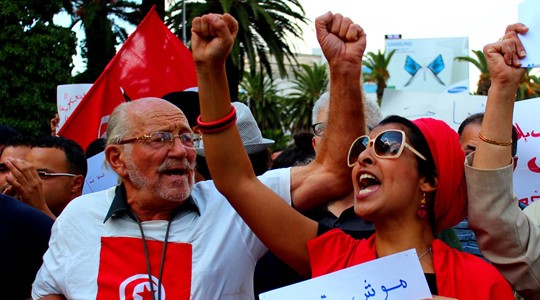
In the aftermath of the failed attempt of the Tunisian government to control the massive surge in COVID-19 cases, Tunisian people have flooded the streets demanding change. Their requests have been answered by the Tunisian president Kais Saied this Sunday, who dismissed the government, froze the parliament, and assumed executive authority. While the president has been accused of initiating a coup by his opponents, the demonstrators have taken over the streets cheeringly in support of this decision. These protests mark one of Tunisia’s most significant events since the 2011 Arab Spring revolution, which despite signs of improvement, has not ultimately been successful in establishing political and economic stability. The current events risk a deepening of a political crisis, coupled with the ongoing pandemic calamity.
This mornings youth for youth meeting with our Tunisian team
December 8, 2020
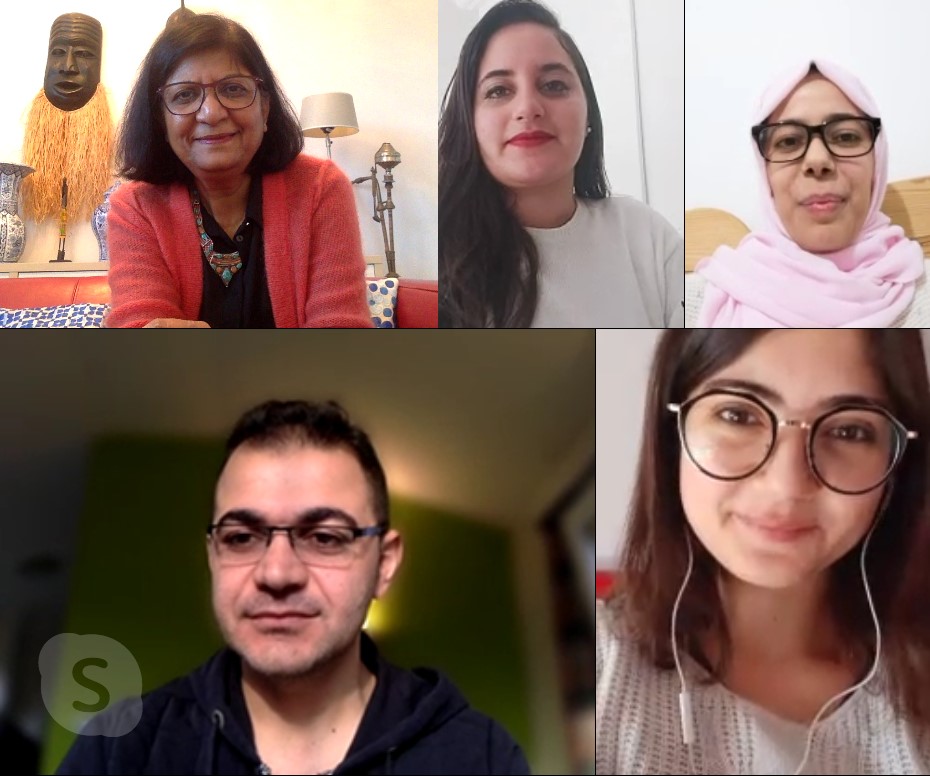
Tunisian Parliamentary Elections Concluded with 41% Voter Turnout
October 7, 2019
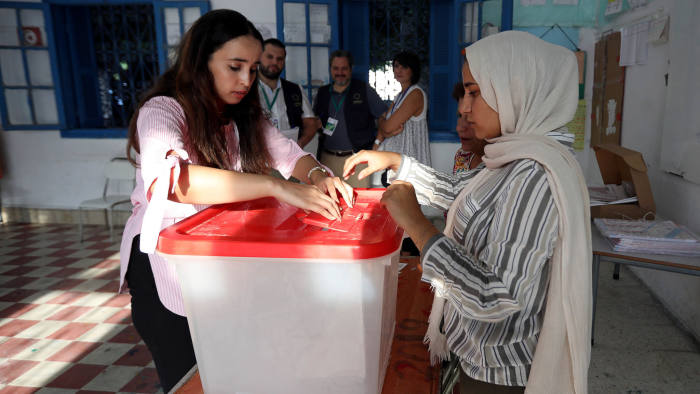
As predicted earlier, the Parliamentary elections held on the 6th of October in Tunisia witnessed less enthusiasm amongst voters than during previous elections.
The elections were viewed as a major test for the young democracy which has been experiencing a drastic decline in support due to political corruption and economic stagnation.
The voting this Sunday took place amidst high security, due to country grappling with terrorism. Total voter turnout stretched only to 41%, well below the 60% recorded in the 2014 election.
The current political scene remains diverse and divided. 200 political parties delivered nearly 16,000 candidates to be voted by public who showed less interest for this confusingly huge number of parties and candidates.
Sunday’s election will have a lasting impact. No party is expected to get single majority and will need to form a coalition. The coalition formation negotiation is expected to take weeks or months. The winner does get to designate the Prime Minister according to the Tunisian Constitution. However preliminary results will be announced on October 10 and the official results announcement is scheduled for November 17. The assembly will then be given two months to choose a Prime Minister and form a new government.
Tunisia elects its Parliament on 6th October
October 3, 2019
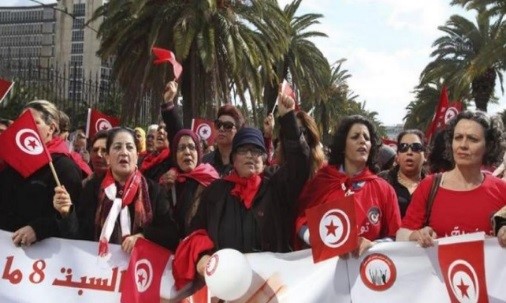
The upcoming Parliamentary Elections to be held on Sunday 6th October, the Tunisian voters with less enthusiasm than previous elections are ready to elect their new parliament.
The elections are viewed as a major test for the young democracy and the position of women in Tunisian politics since the 2011 Arab Spring as support for democracy has drastically declined and experts expect an unpredictable outcome. Many citizens are frustrated by political corruption and economic stagnation. Tunisia is marked by high rates of unemployment and a huge urban and rural divide. The only success story of the Arab Spring is experiencing a test of its young democracy.
Tunisia is considered as the most progressive country in the region and has a record of empowering women and abolishing restrictive laws to promote gender equality. However, as many women activists state, cultural barriers and economic limitations to women’s rights persist deeply . Gender parity remains to be fought in Tunisia.
Tunisia’s Presidential Elections - A Test for a Young Democracy
September 16, 2019
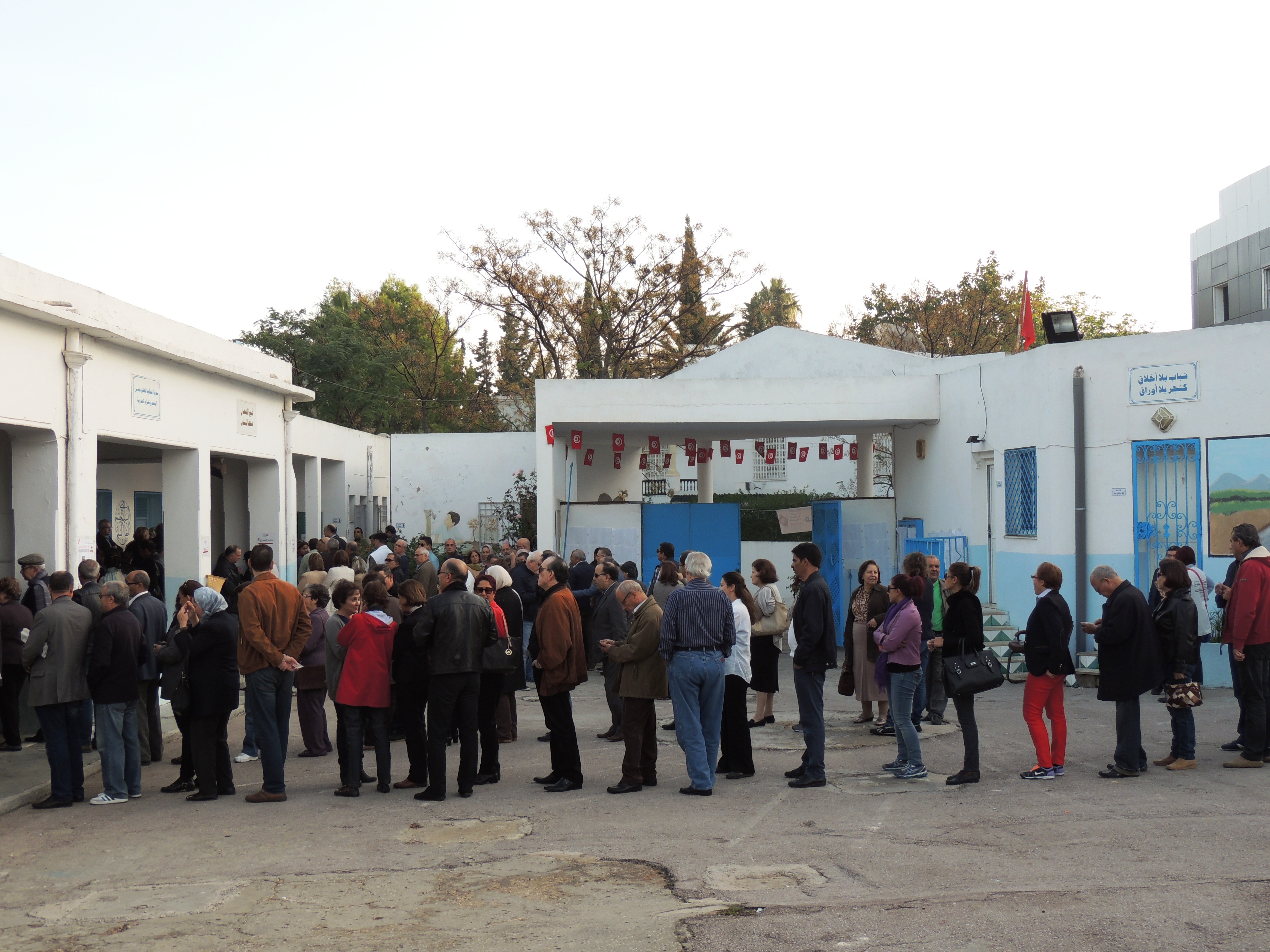
On Sunday 15th September, Tunisians went to the polls to choose their next president. The second free presidential elections in the country’s history are a major test for the young democracy and the position of women in Tunisian politics since the 2011 Arab Spring.
Support for a Tunisian democracy has drastically decreased, and experts expect an unpredictable outcome. Many citizens are frustrated by political corruption and economic stagnation. Tunisia is marked by high rates of unemployment and a huge urban and rural divide. The only success story of the Arab Spring is experiencing a test of its young democracy. Especially the young population of the country was missing from the polls this weekend and the voter turnout has not succeeded 45%.
Tunisia is often seen as the most progressive country in the region and has a record of empowering women and abolishing restrictive laws to promote gender equality. However, as many women activists state, cultural barriers to women’s rights still remain.
Democracy remains a very important element in strengthening women’s capacity in Tunisian and supporting their quest for equality. Therefore, Gender Concerns expresses it concerns about the upcoming election results in Tunisia but is glad to observe that the elections proceeded peacefully.
Tunisia electoral commission approves 26 presidential candidates
August 15, 2019
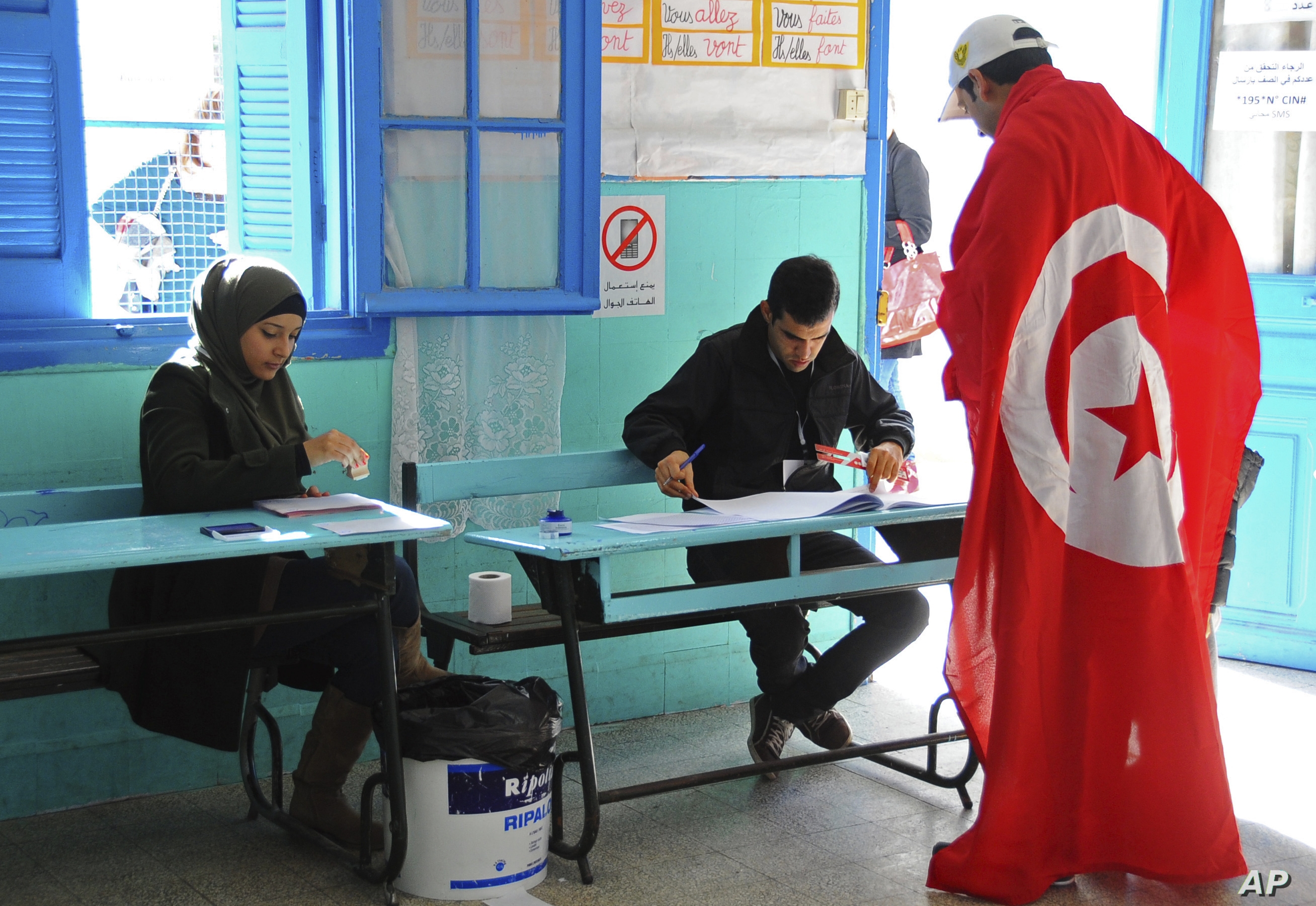
Two women are among the candidates qualified to run in September 15 vote, while 71 other applicants are rejected. The two women candidates approved are Salma Loumi, a former tourism minister, and Abir Moussi, a staunch supporter of long-time ruler Zine El Abidine Ben Ali who was overthrown in the 2011 uprising.
COP24: Event two, Benelux Pavilion: ‘Shared Inclusive Approaches to Sustainable Economic Development in MENA Region: Case of Tunisia’.
December 19, 2018
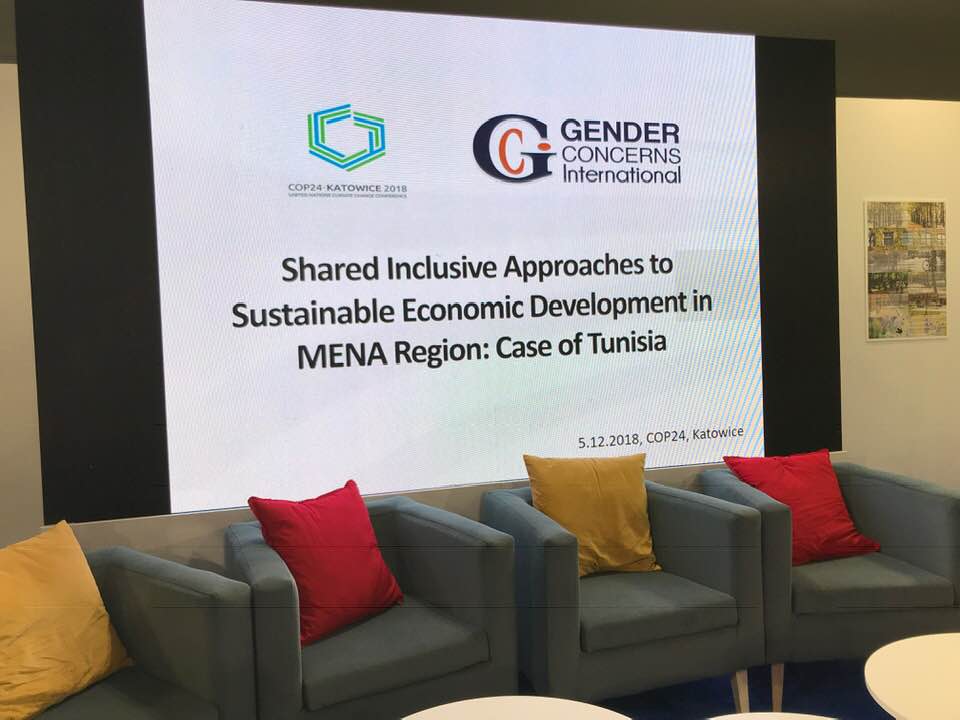
Subsequent to the revolution, Gender Concerns international has been active in Tunisia, supporting gender electoral parity, election observation and rural women`s economic inclusion. The recent economic and political transformation in the MENA region requires urgent support and cooperation in meeting the environmental challenges – especially in Tunisia, as a regional role model. The rising level of pollution is alarming and demands inclusive and innovative approaches led by national and local governments in both urban and rural areas. The side event was important in highlighting the increasing investment efforts in the Renewable Energy Sector within the context of Agenda 2030 targets and assessing the scope of setting-up an expert network to raise awareness on sustainable agriculture and environmentally responsible entrepreneurship. Speakers included Mr. Rafik Aini, Ministry of Agriculture Tunisia, Michelle Winthrop, Development Specialist/Climate and Resilience Policy Lead, Government of Ireland, Tracy Kajumba, Regional Senior Climate Change and Development Advisor, Government of Ireland and Dr. Khedija Arfaoui, feminist and scholar, Tunisia. Event was hosted and moderated by direct Sabra Bano.
Tunisia New Draft Bill to Equalise Inheritance Rights Men and Women
August 17, 2018 (Tunisia’s National Women’s Day)
After years of continuous effort put by Civil Society and Women’s Organisations, Tunisia’s President Beji Caid Essebsi announced his plans to submit a draft bill to the parliament, equalising inheritance rights between men and women.
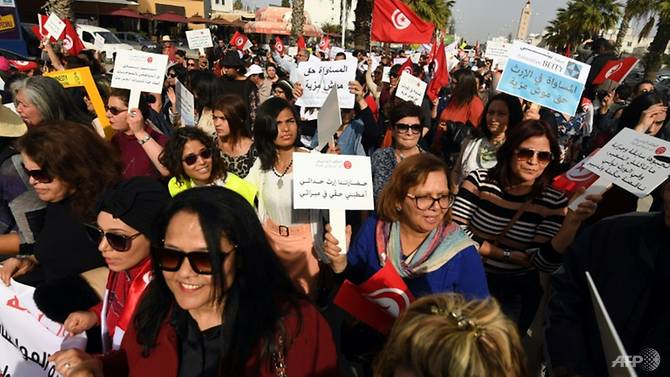
Picture source: Channel News Asia
The current Tunisian law states that male heirs should inherit twice as much as females of the same level of kinship. This means that within a family, the son would inherent double the amount his sister would. According to the Tunisian president “we will overturn this situation” and make equality the rule rather than the exception.
The new bill, once submitted and accepted, would ensure that by law, women are entitled to an equal amount of the inheritance as men. It is still possible for Tunisians to make a last will and testament and express how they wish to see their assets divided. However, should such a last will or testament not be in place, then the new equality law would apply by default.
Tunisian president Essebsi stated he considers equalising inheritance rights between men and women his duty as the president of all Tunisians. He also stated it is his duty to unite and not to divide.
Last month, a woman from Tunisia’s moderate Islamic party was elected as Mayor of Tunis as the first ever women to hold that post. Tunisia has also allowed Muslim women to marry non-Muslim men since last year. Therefore, Tunisia is currently the country in its region to give the most rights to women, taking crucial steps towards a more gender equal society.
Gender Concerns International is elated by the news and the future, which President Essebsi is working towards for Tunisia. Furthermore, Gender Concerns expresses its support of the draft bill in hopes to see further developments of this kind.
Good news for the rural women of Tunisia
August 10, 2018
The head of the Tunisian Government, Youssed Chahed presented yesterday a number of decisions taken related to social issues. By the signing of a new convention close to 500 000 rural women are to be ensured the coverage of health- and social security. Moreover, Chahed presented an increase in the pensions as well as an increase in the minimum wage which will also have a positive impact on the pensions.
Studies have shown that 48,9 % of rural women in Tunisia work without a contract and that only 10,5% are connected to the national social security fund meaning that these news are of great importance to these women.
Monday the 13th of August is the national day of women in Tunisia and yesterday, the 9th of August, it was decided that the 9th of August from now on will be the national day of migrant women in Tunisia. This was proclaimed by Naziha Labidi, the Minster of women during a conference on the topic of migrant women.
Election of First Female Mayor of Tunis - Gender Concerns International Joins Tunisian Women in Celebrating Women’s Victory
July 3, 2018
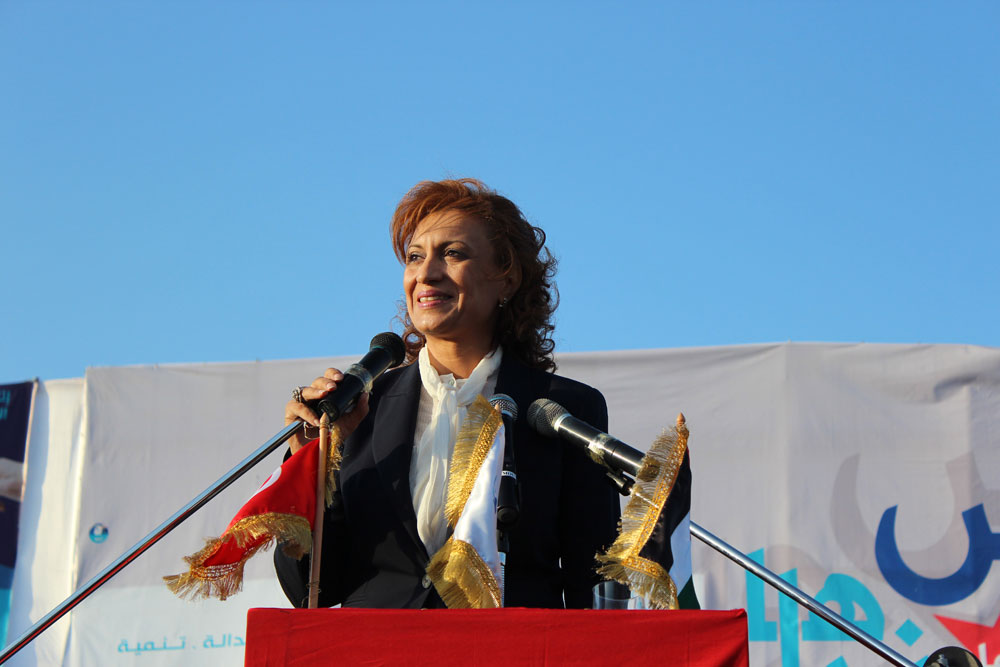
(Picture: Wikimedia Commons)
Gender Concerns International and its Director Ms. Sabra Bano express their warmest congratulations to Mrs. Abderrahim and all Tunisian women for taking one more crucial step towards gender equity and women’s rights.
3rd July 2018- Souad Abderrahim, a former lawmaker and dedicated advocate for women’s rights, was elected mayor of Tunisia’s capital, setting a strong example and marking a victory of all Tunisian women.
This is the first time in Tunisian history that a woman holds this post. After receiving 38% percent in the first round of 2018 municipal elections in May, Mrs. Abderrahim won elections as mayor through a second round of voting by municipal councillors. Her awaited success at municipal elections is the victorious achievement of all Tunisian women in their democratic quest for gender equality and female leadership as well as a reminder for the whole region that no democratic development is possible, if one gender is left behind.
Gender Concerns International, as an operative organization in Tunis, celebrates with Tunisian women. Mindful of its commitment in Tunisian democratic procedures and of the challenges to come, with general elections set for 2019, the organization takes the opportunity to stress the vital role of women’s electoral participation and female leadership for strong and inclusive democratic practices all over the world.